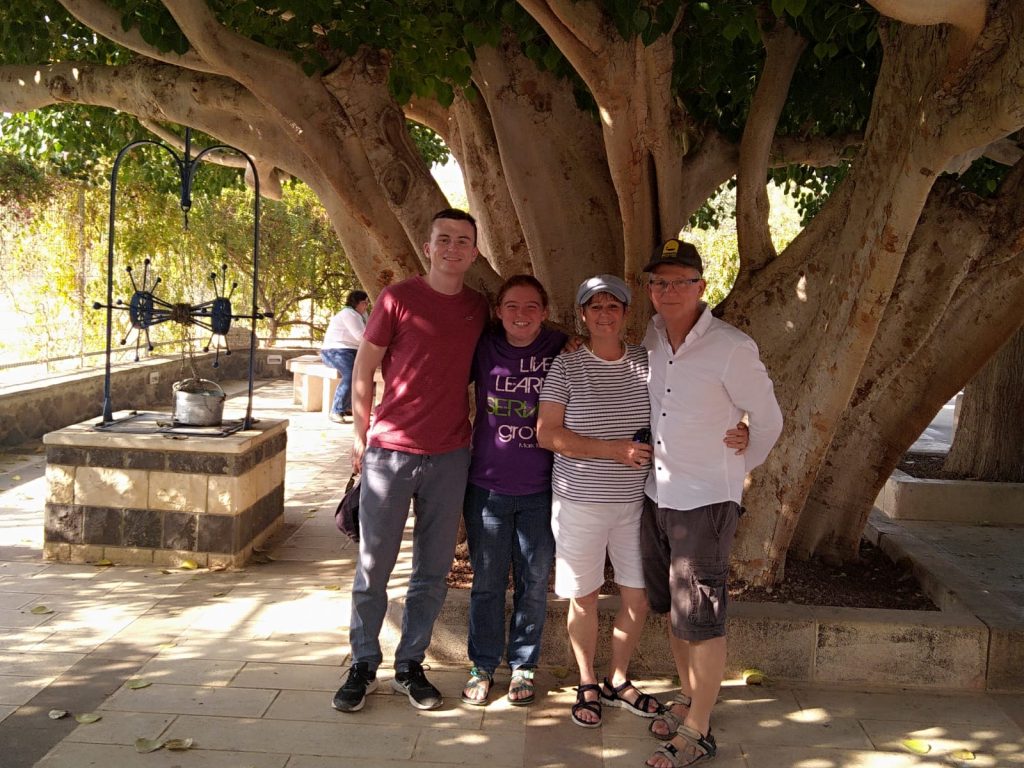One of the ways you can SERVE is by spending your medical elective at the Nazareth Hospital. We’ve spoken to Dominic Fehler, one of our most recent’s elective students about his experience.
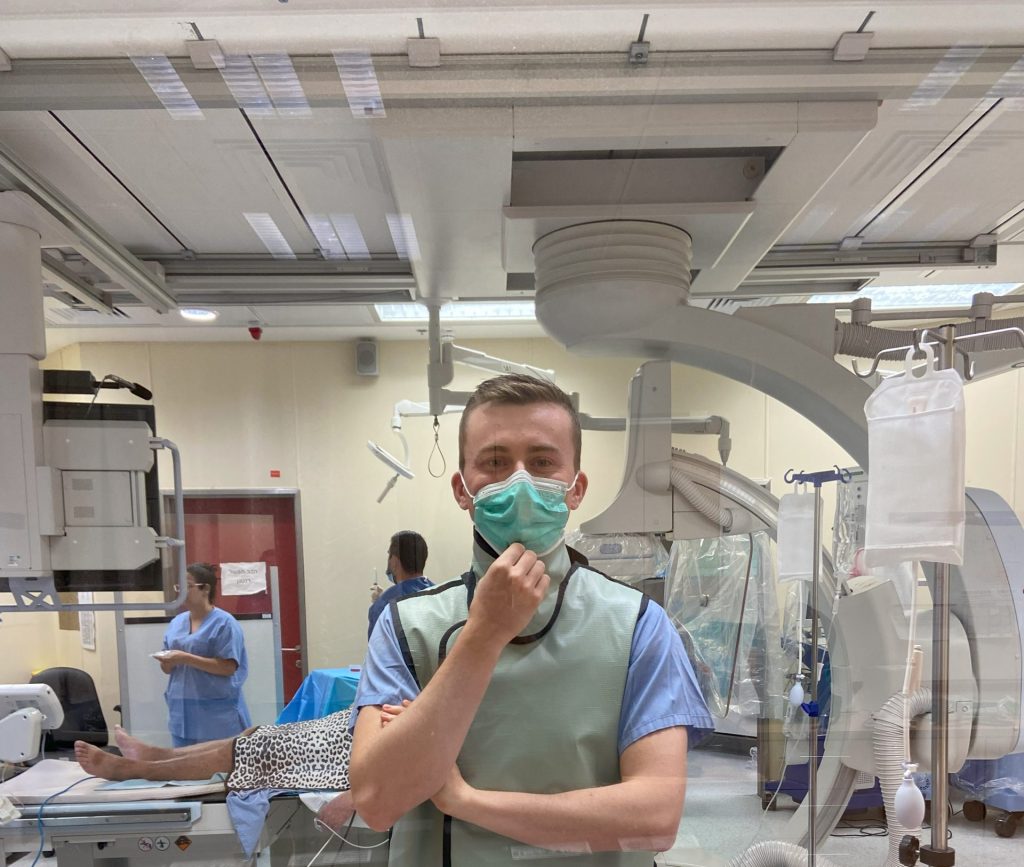
Name: Dominic Fehler
Age: 26
Country of origin: Switzerland
Education: medical student
Medical elective in Nazareth: September – November 2022
I’m doing my elective now, so I had the opportunity to do part of it abroad. I’ve always wanted to do it, but I was also a bit apprehensive about it. Going to another country can be challenging in many aspects, but also, as a Christian, Israel is a place that plays a certain spiritual role. A family friend of mine worked at the Nazareth Hospital in the 80s, and he recommended I go there. He also gave me some contacts. I applied, and I asked if it was possible. I’m very happy I had the opportunity to do that. I’m quite interested in the Middle East, Israel, and the Arab culture and language. I saw the Nazareth Hospital as a very good opportunity because it met all my interests: it was perfect.
No, it wasn’t. My first time in the Middle East and Israel was in 2017 when I went on an Israel road trip for one week with one of my sisters and two friends.
We didn’t visit Nazareth that deeply, but we saw the Basilica of the Annunciation, some of the old city, etc. We were there for maybe two hours or so.
It was so many things. In some sense, challenging because, as a European or a Swiss person, the mentality is very different. Going there and being relaxed at the beginning wasn’t that easy. You don’t understand most things and are alone in a foreign country.
But the Doctor’s House at the hospital was a place where I could be myself, which gave me a lot of security and comfort. The cultural aspect was very enriching: getting in touch with the locals and getting to know some of them: families, young and older people. I got to eat with them and learn about their food and mentality. A concept of mentality that’s different from what I’m used to. You’re also confronted with the Israel-Palestine issue. The difficult co-existence, which is understandable on many levels. It allowed me to understand it better because we live in a different reality here in the West. Living in Israel was very enriching, and I learned a lot that I can now take with me in my daily life.
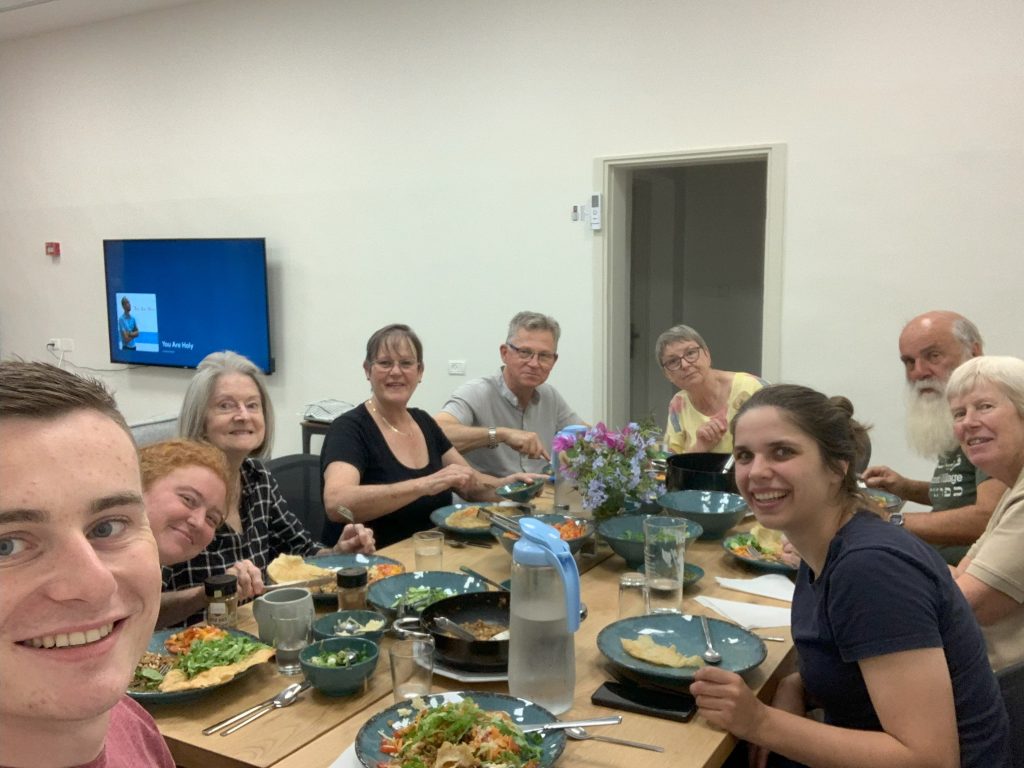
Dominic having dinner with other SERVE volunteers at the Doctor’s House.
While helping at the cardiology department, I usually had to be there from 8.30 am until 4 or 5 pm. I was mainly in the cath lab, where people who had heart strokes go to get treated. I also spent some time in the intensive care unit.
At the surgery department, we started around 7 or 7.30 am to discuss the cases of the night before and the patients being treated. Some days I went to the surgical room, mainly observing, but sometimes, I also helped a little. In surgery, you never really know when the day ends: sometimes it was at 3, other times at 6. I also spent a few hours in the emergency department. I saw quite a lot of the hospital.
Yes, I want to become a general practitioner. For the moment, that’s my plan.
I didn’t speak much with patients because, unfortunately, I don’t speak Hebrew or Arabic. I only spoke to younger patients who understand and speak English.
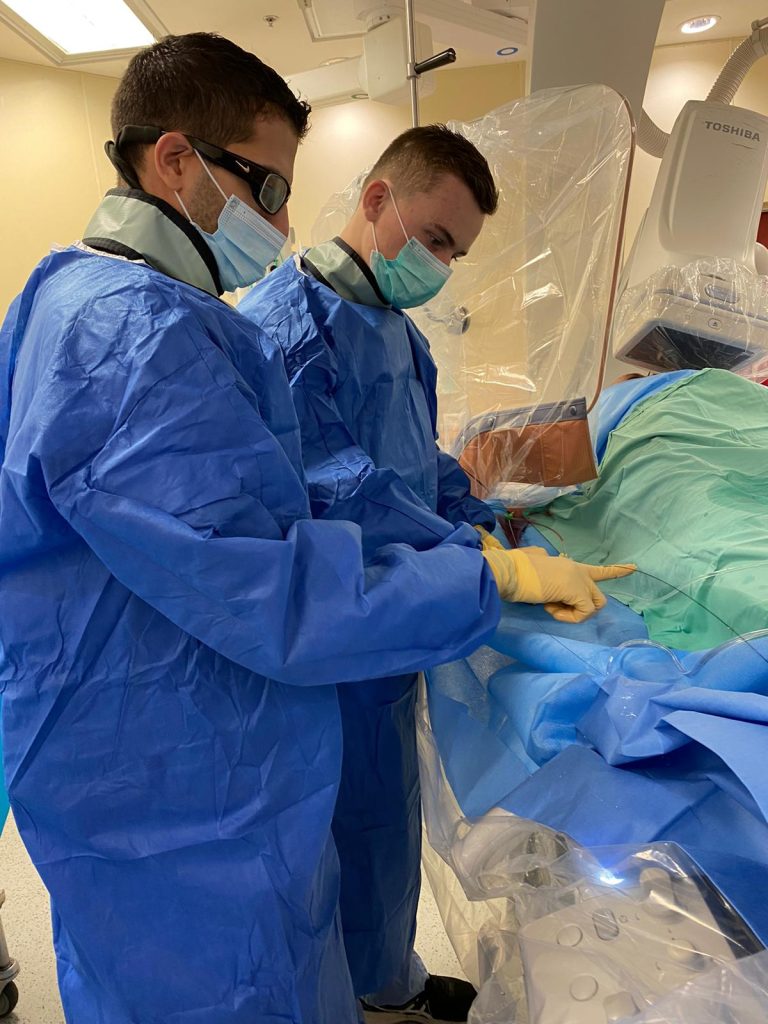
Every hospital has its unique internal culture: the way you handle certain situations and procedures. The infrastructure and machinery were similar to what I see here in Switzerland. The surgical procedures are done the same way. The quality was also very similar to what we have here. Obviously, the cultural aspect was different: you interact with the patient according to Arab customs.
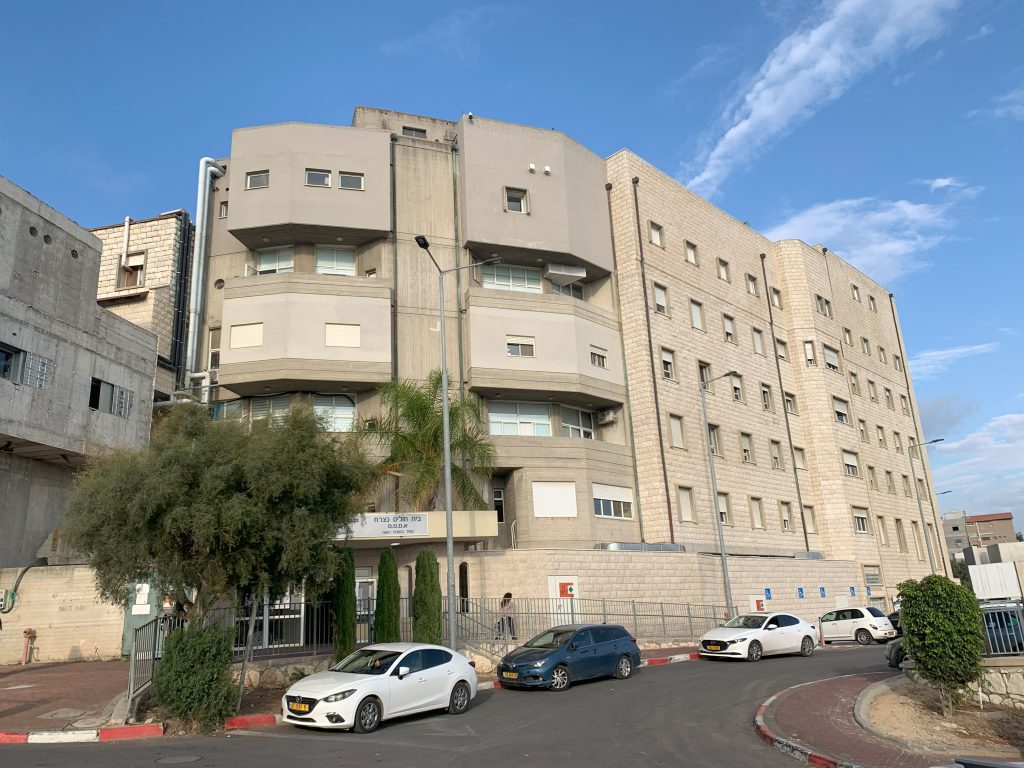
That’s a question I cannot fully answer due to the language barrier. From what I saw, the relationship was close: I saw them joking, for example. Patients looked up to doctors and showed it with their behaviour. Here in Switzerland, we also hold doctors in high regard, but we show it differently. The relationship is much less personal. In Nazareth, it looked much more personal because patients were gifting food to the doctors. We wouldn’t do it here in Switzerland because it’s not our custom.
In the afternoon, I would go home to relax after the day and do my chores. Later, I would meet with the others for dinner. After dinner, we usually spent time together talking about our impressions of our day. I also went down to the Nazareth Village a few times, especially during the olive harvest, or went downtown to buy groceries. At the weekend, I went to church and was sometimes invited by a family to their house.
I didn’t travel that much because I easily get car sick. Riding on a bus was a bit challenging. I was invited to friends’ and co-workers’ homes a few times, and they took me to Haifa, Akko, Sakhnin, etc. Frank Kantor, the Spiritual Director at the Nazareth Trust, took us to the Sea of Galilee and showed us a little bit around. Looking back now, I probably would have pushed a little bit more.
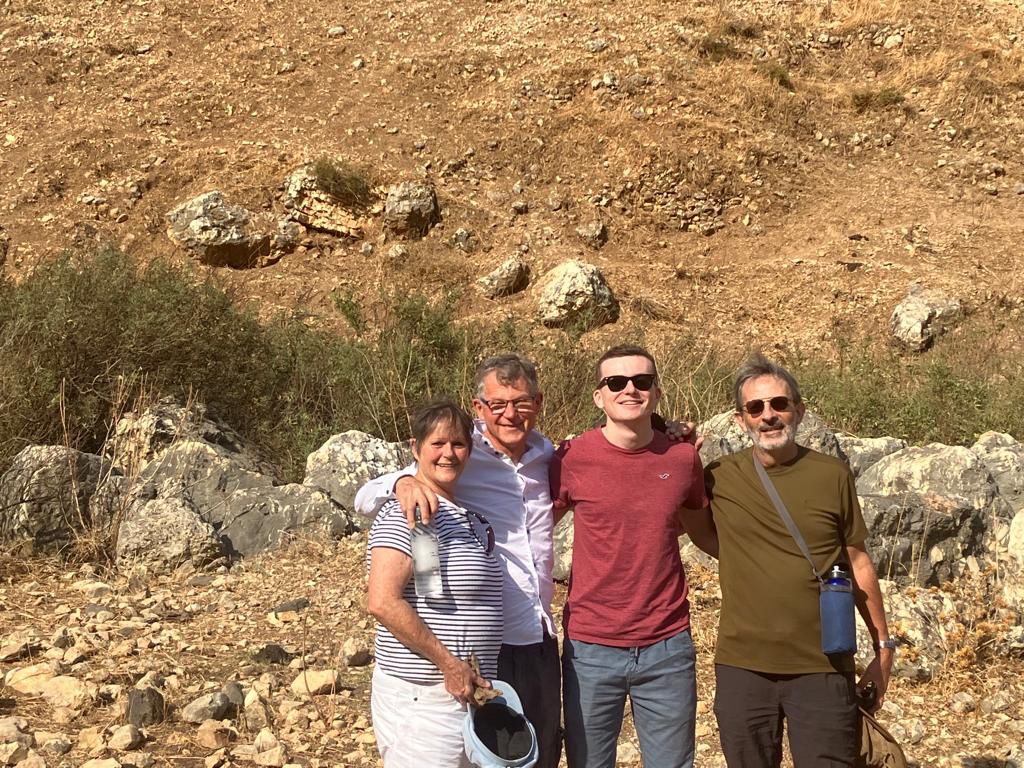
Jerusalem is a place where you experience a lot. I also really liked the desert in the south of Israel. I also enjoyed Haifa, the Sea of Galilee, etc. It depends on how you want to spend your day, but every place has its beauty.
The Mashawi, the barbeque. I was invited to a family’s home, and we ate hummus, flatbread, etc. I also ate a sheep’s tongue, which wasn’t my favourite, but I enjoyed the experience of eating something different. That gives it a special touch.
The mentality was very different to what I’m used to. Life is not as simple and clear as I thought it would be. There are also other ways of being that are okay; they bring their challenges but also have their good side. One of my takeaways was to learn to love and understand different mentalities around the world. That’s what made the Israel experience so valuable for me.
The experience was very enriching as a medical student, but there were also some challenges. I recommend to future students that if you go, do it with an open mind and open heart, so that you can really grasp the reality. It helps you understand better how different people can be, how they can feel differently and how they can experience the injustice and the justice that happens in other places.
One of the difficulties for me was the language; if you want to go there, you should take care of it. The doctors know English, but not all of them, so you really have to look out for yourself. I could have experienced more if I had been more proactive, but in my culture, you don’t push too much or express yourself that much. I can only encourage other students to go there and experience; take part in the lives of the patients and doctors.
You should have expectations. But you have to work towards fulfilling those expectations. If you say something, they will do everything possible to make it happen. But you need to take the first step. I may have realised it too late, but I would definitely do it again.
